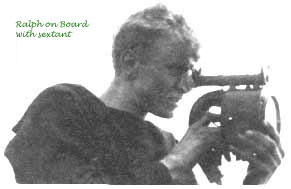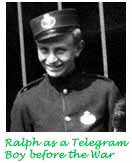|
20.
Poona
A few weeks after my arrival we were told to be ready to
travel to Poona. Great excitement. The following day we fell
in and after gathering all our signalling gear were transported
to Bombay, Baroda and the Central India Railway Station ready
to be taken over the Western Ghats from the coastal plain
to the considerably higher inland plains. These seemed like
a series of narrow shelves separated by steep cliffs. The
station was the ornate building that I had mentioned before.
After stowing our gear the P.O. was left in charge as we
strolled along the train. This was where I had a good look
at the four classes of compartments, or at least three as
there was no fourth class - this train was too posh for the
rubbish. She was powered by a huge Cammell Laird British loco,
a beauty.
The station concourse was a teaming mass of people who wandered
around or lay about. It was like a parrot house gone mad.
Finally we closed the windows as the train set off. The train
thundered north before finally turning east.
The boys passed the time at first leaning out of the window
shouting insults at the natives they passed, but this soon
palled as they were greeted by a cheery wave or a "namaste";
a greeting given with the hands together and a bow of the
head. I must mention in passing that the only navy thing we
were allowed to wear was our hat. This always awoke enormous
interest which disappeared when they were replaced by Australian
bush hats.
The train ascended by wide swoops and turns and a marvellous
vista would have been in sight if a heat haze had not covered
the whole of the lower plains. At last the train reached the
top to stop at a little station called Escarpment.
|


